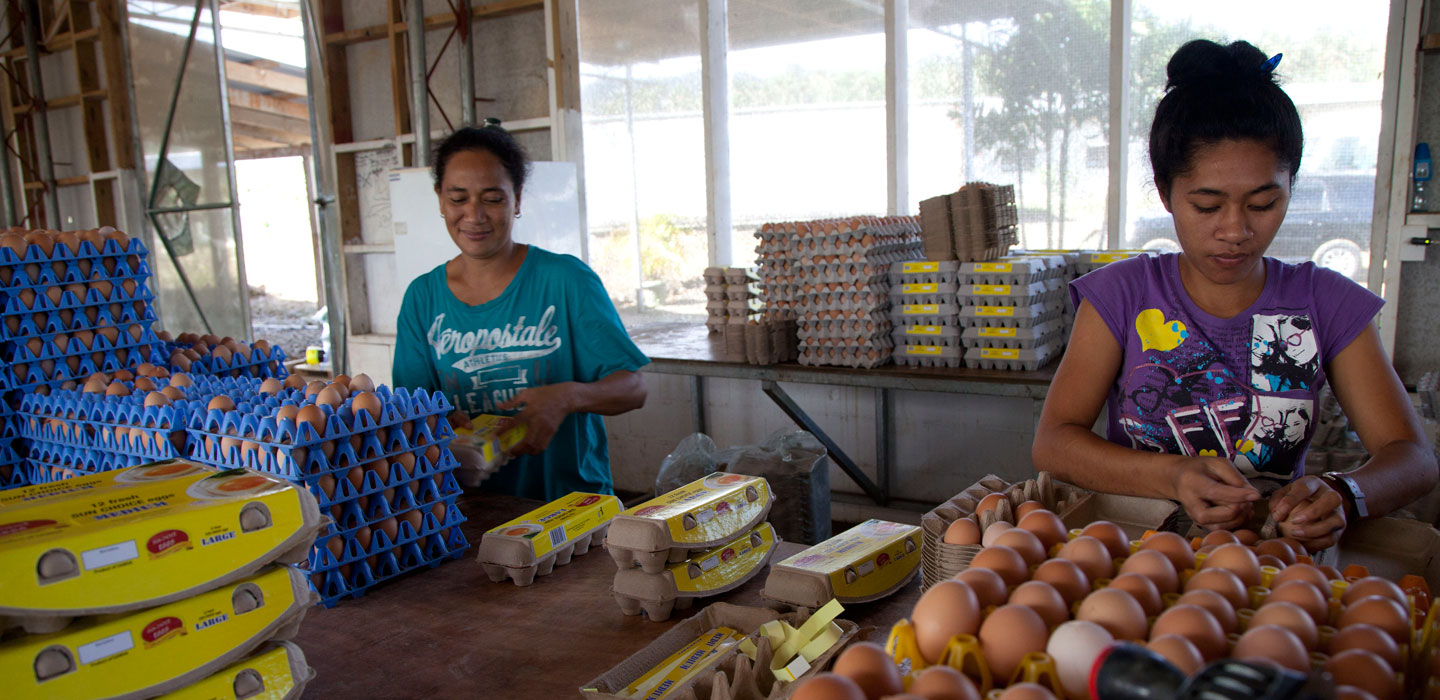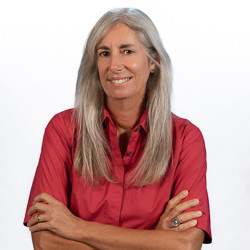IFAD and partners invest US$ 30 million in Samoa to make small-scale farming and fishing more profitable and climate-proof
IFAD Asset Request Portlet
Asset Publisher
IFAD and partners invest US$ 30 million in Samoa to make small-scale farming and fishing more profitable and climate-proof
18 October 2019
Workers package eggs on a chicken farm in Samoa.
Washington DC, 18 October 2019 – The International Fund for Agricultural Development (IFAD) and Samoa have signed a financing agreement to significantly increase agricultural production and incomes for 25,000 smallholder farmer and fisher families, and to help protect against natural disasters on Samoa’s Savai’i and Upolu islands.
The agreement for the Samoa Agriculture and Fisheries Productivity and Marketing Project was signed by Gilbert F. Houngbo, President of IFAD, and Sili Epa Tuioti, Minister of Finance, Samoa.
The total cost of the national project is US$30.28 million, including a $3.6 million grant from IFAD. The project will be cofinanced by the Government of Samoa ($.74 million), the International Development Association ($19.95 million), the private sector ($1.54 million), and beneficiaries ($4.45 million).
“IFAD is working with Pacific governments, regional and international partners, and Pacific Island communities to support rural livelihoods, increase household incomes and strengthen community resilience to better cope with the effects of extreme weather patterns,” said Tawfiq El-Zabri, IFAD Country Director for the Pacific Islands.
Samoa is a small and remote set of Pacific islands with a population of approximately 197,000 people. It suffers a high recurrence of cyclones and tropical storms with damage and losses from natural disasters estimated at just over 12 per cent of the country’s GDP.
Farming and fishing are mostly subsistence-based and few are able to produce enough food to sell or export. Because of the country’s remoteness, transport is costly. Imported food is predominantly of low value and poor quality, leading to poor health outcomes. Conservative estimates indicate that 30 per cent of men and over 50 per cent of women in Samoa suffer from obesity.
The main goal of the project is to help rural households to increase incomes, improve nutrition and enhance their climate resilience by assisting smallholder farmers to produce local, diverse and climate-smart crops and integrate production into commercial value chains. These measures will help producers to access export and domestic markets.
The project will also help to improve infrastructure including restoring rural roads that connect upland farms to markets, building cocoa and coconut nurseries, and constructing rain-water harvesting structures and crop-drying facilities.
For the fisheries sector, improved infrastructure will include building cold storage facilities located at fish markets and protecting coastlines by planting trees and taking other measures. All infrastructure will be built or rehabilitated using disasters-resilient standards and materials, resistant to cyclones and natural disasters.
For almost 40 years, IFAD has been financing initiatives in the Pacific to help rural people improve their lives. IFAD currently has seven projects ongoing in the Pacific islands. Since 2013, IFAD investments for projects and programmes in the Pacific totals approximately US$91 million and is expected to reach US$99 million by the end of 2019.
Read more about IFAD’s work in the Pacific
Press release No.: IFAD/44 /2019
IFAD invests in rural people for 40 years, empowering them to reduce poverty, increase food security, improve nutrition and strengthen resilience. Since 1978, we have provided about US$21.5 billion in grants and low-interest loans to projects that have reached some 491 million people. IFAD is an international financial institution and a specialized United Nations agency based in Rome – the UN’s food and agriculture hub.
More about IFAD: www.ifad.org.
